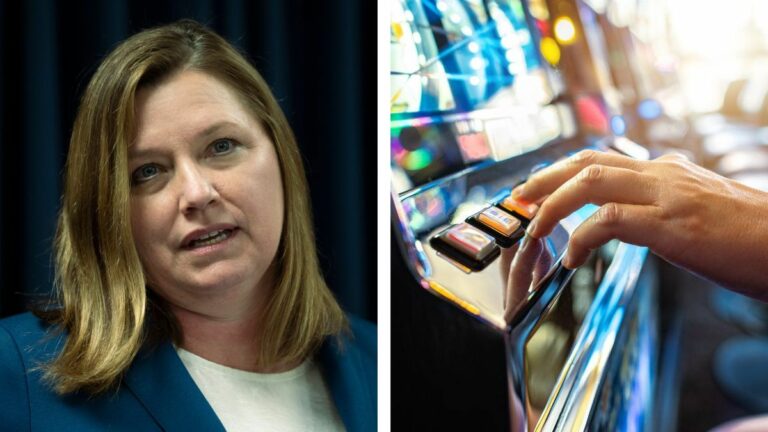
Pennsylvania Attorney General (AG) Michelle Henry has asked the Pennsylvania Supreme Court to hear an appeal of lower court decisions that ruled skill gaming machines are not illegal gambling.
In the petition filed on Jan. 2, the Attorney General argues that the ruling of the Commonwealth Court contradicts existing precedent.
Specifically, the petition holds that the en banc decision would “effectively nullify” the Supreme Court’s predominant factor test.
Additionally, the AG contends the lower court improperly refused to apply the definition of “slot machine” and that precedent requires consideration of gambling statutes in “pari materia” (together).
Henry also argues that the ruling, as it stands, sets the stage for an uptick in legal challenges that “await this court’s guidance.”
From the introduction:
The Commonwealth Court decision is wrong on two levels. One, it perverts this Court’s well-established “predominant factor” test for assessing gambling devices under the Crimes Code. Two, it disregards the legislature’s explicit definition of a slot machine in the Gaming Act, which the court refused to read in pari materia with the Crimes Code’s own explicit reference to slot machines.
Under this Court’s precedent, if it acts like a slot machine and operates like a slot machine, it’s a slot machine. The Commonwealth accordingly seeks review.
PA AG: Lower Courts Ruled Improperly
The AG’s appeal follows a unanimous en banc decision delivered on Nov. 30 by Pennsylvania’s Commonwealth Court affirming an earlier Dauphin County Court ruling.
In that case, Judge Lori Dumas ruled that three Pace-O-Matic (POM) machines removed from Champions Sports Bar were neither slots nor illegal gambling. Instead, Dumas found the cabinets akin to legal video games and ordered law enforcement to return the machines.
The state, however, disagrees with those rulings. And makes its reasoning clear within the petition.
Throughout all this litigation, device operators have contended that casino owners and government officials have unfairly teamed up to put them out of business.
They say they are performing a public service, for example, by providing charities and social clubs the means to raise needed funds. But the General Assembly has already explicitly prohibited the use of slot machines for such purposes just as it has heavily regulated slots in other areas.
Legislators, the petition cautions, may reconsider existing laws at any time, like when the state legalized Pennsylvania online casinos in 2017. Notably, POM has also pushed for skill games to be regulated and taxed.
But, until something changes, the AG says courts and citizens need clarity.
In Pennsylvania, the petition explains, the legislature has already determined that only licensed casinos can legally offer slots.
Not even the state’s own lottery system, let alone private parties, can do so. The machines at issue here are video recreations — simulations — of a traditional physical slot machine. They spin, play, and pay just like the modern electronic slot machines found in casinos today.
Pennsylvania Casinos Support Appeal
According to the filing, the Commonwealth Court ruling asserts that skill machines are not slot machines, based on an inconspicuous peripheral game it believes most would never notice.
If left to stand, the AG warns of dire consequences.
The Commonwealth Court’s en banc decision will have sweeping effect in Pennsylvania, where thousands of these machines are proliferating across the state, in bars, in convenience stores, and even in casino-style gambling halls — all without any special licensing, regulation, or taxation.
And under the lower court’s ruling that these slot machines are not slot machines, they could be placed anywhere at all, even in middle school cafeterias.
On Jan.2, many of Pennsylvania’s licensed and regulated casinos also submitted an amici curiae brief in support of the AG’s petition for appeal.
According to the brief, the group, including Parx and Hollywood casinos, Harrah’s, Wind Creek, Rivers, Mohegan Sun, Live!, and more, chimed in to protect collective interests.
Specifically, the group aims to safeguard “established property interest” against the “proliferation” of unlicensed machines.
By endorsing the farce that these machines are not illegal gambling machines—though they are generally understood by the public as gambling machines; they are played like gambling machines; they are marketed as gambling machines; and they generate revenue like gambling machines—the Commonwealth Court’s decisions, if left unchecked, will result in a continued propagation of these machines that will substantially harm the Commonwealth and its citizens.
Together, explains the brief, the operators support Pennsylvania and its citizens.
The Commonwealth Court’s ruling that POM Machines somehow fall outside Pennsylvania’s regulatory gaming scheme is wrong. It not only harms Amici—who operate within the law— but endangers Commonwealth citizens by sanctioning violations of the Crimes Code and diminishing significant gaming taxes upon which the Commonwealth depends. This Court should grant the Petition and uphold the law.





